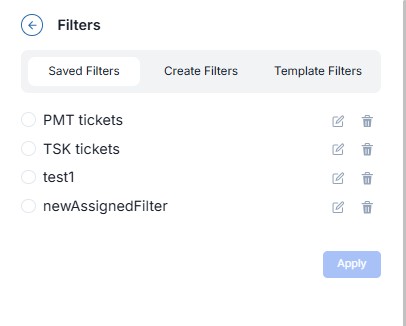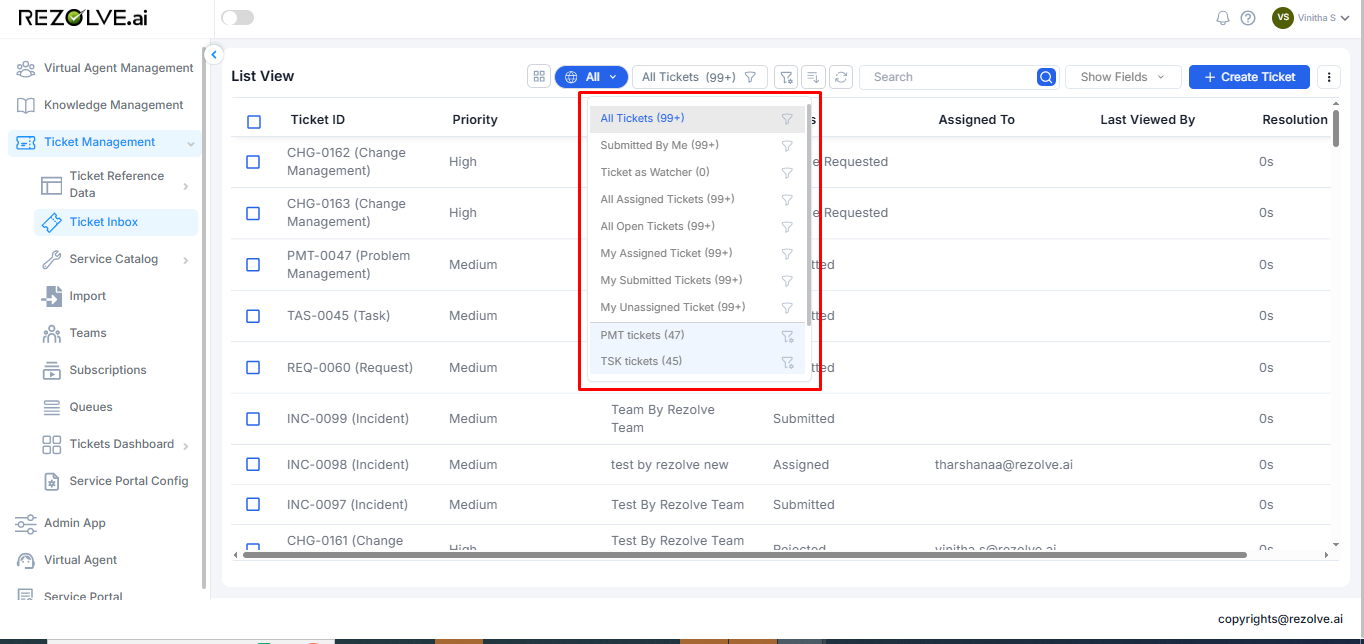Ticket Filters
Ticket filters are a powerful way to organize, sort, and find specific tickets in the helpdesk system. They help improve efficiency and response times for agents and managers.
Filters
- Allows users to refine ticket lists based on specific criteria.
- Common filters include status (Open, In Progress, Resolved, Closed), priority (Low, Medium, High, Critical), assigned agent, category, ticket type, and creation date.
- Helps agents focus on relevant tickets without scrolling through unnecessary entries.
Types of Filters
- Status Filters: Open, Closed, Pending, In Progress
- Priority Filters: Critical, High, Medium, Low
- Category Filters: Incident, Service Request, Problem, Change
- Assignment Filters: Assigned to Me, Unassigned, Assigned to Queue, Assigned to Agent
- Time-Based Filters: Created Today, Due Today, Overdue, Updated This Week

Creating Custom Filters
- Navigate to the Filters section in the ticket management interface
- Select "Create New Filter"
- Choose the criteria you want to apply (multiple criteria can be combined)
- Name and save your filter for future use
- Optional: Share the filter with your team
Saved Filters
- Saved filters appear in the left navigation panel for quick access
- Filters can be marked as favorites for easier access
- Filters can be shared with specific teams or all users
- Filters can be edited or deleted as needed

Sorting
- Users can arrange tickets based on different attributes such as creation date, last updated time, priority, or ticket status.
- Supports ascending and descending order sorting for better workflow management.
Sorting Options
- Sort by Date: Creation Date, Last Updated, Due Date
- Sort by Priority: Critical to Low or Low to Critical
- Sort by Status: Open to Closed or Closed to Open
- Sort by Requester: Alphabetical order
- Sort by Agent: Alphabetical order by assigned agent
Search
- Provides a quick way to locate specific tickets using keywords, ticket ID, requester name, assigned agent, or description.
- Enhances efficiency when dealing with a high volume of tickets.